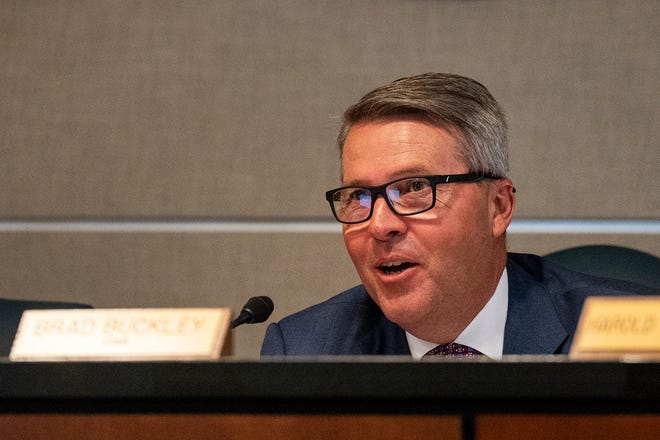
In what felt like a “Groundhog Day” scenario, education lawmakers debated and listened to the public speak about the House’s school choice and education finance proposal Thursday.
In a hearing of the House’s Educational Opportunity and Enrichment Select Committee, lawmakers spoke passionately about House Bill 1, the proposed package that would deliver a school choice program, which uses tax dollars to fund a child’s private school education.
The hearing is a necessary first step in advancing the bill to a full hearing in the House, where school choice — also called vouchers — has bitterly divided lawmakers. As of Thursday afternoon, the committee had not voted on the proposal.
While lawmakers have heard school choice bills in at least half a dozen committee hearings this year, the full House has yet to vote on the issue, which Gov. Greg Abbott has thrown his full political weight behind.
Over the year, opposition among Democrats and rural Republicans has blocked the legislation over fears it will draw money away from public school systems.
More:Greg Abbott has failed repeatedly in school voucher fight. Will that hurt him politically?
In a packed room Thursday, school administrators and education analysts spent hours talking to lawmakers about their support of or opposition to school choice.
Although the $7.6 billion HB 1 would give to public schools and raise per-pupil funding by $540, Democrats and some rural Republicans have vehemently opposed the proposal.
The bill would draw money away from public schools already hit by inflation and teacher shortages, said Austin-area Democratic Rep. James Talarico.
“We can’t compromise because we don’t share the same goal,” Talarico said. “The other side is playing for keeps. The other side is playing the long game. My school districts desperately need funding.”
Public schools are the centerpiece of rural communities, said Rep. Ken King, R-Canadian. King is hesitant to vote for anything that could reduce funding for those schools, he said.
“I will never ever consider a voucher program and leave public schools without fully funding them,” King said.
Those in support of the proposal insist it could give options to students who aren’t getting served in public schools and whose parents can’t otherwise afford private schools.
“I’m trying to figure out when it’s bad to have another option,” said Rep. James Frank, R-Wichita Falls. “That is the least child-centric, least parent-centric position that can be taken.”
Rep. Brad Buckley, R-Killeen, who authored HB 1, insisted school choice programs put the parents in the front seat of their child’s education.
“They are the most important factor in their kids’ education,” Buckley said. “They just are.”
Buckley is the chair of the House Public Education Committee.
“I think too often our kids are viewed as a business decision, and that’s unfortunate,” Buckley said.
The Senate has also filed a school choice bill, Senate Bill 1, and a school finance bill, Senate Bill 2.
